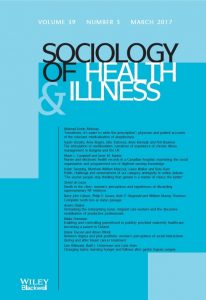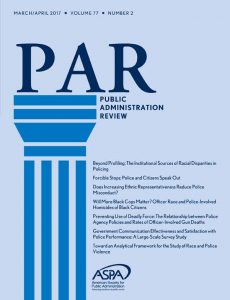Oil gushes into the Gulf of Mexico, who has the expertise to stop it?
 Oil has been gushing into the Gulf of Mexico for over a month as a result of an explosion atop a rig that was extracting crude from a 5,000-foot-deep well owned by British Petroleum. The horrific event, which killed 11 men working on that rig, set off a leak that experts say is pumping anywhere between 5,000 and 18,000 barrels of oil a day; that’s anywhere from 210,000 to 756,000 gallons of crude oil flowing into the Gulf of Mexico per day. It’s an amount that’s hard to fathom. There is already way more oil in the gulf than the 11 million gallons that spilled into Prince William Sound from the Exxon Valdez tanker in 1989. The environmental and economic fallout from t
Oil has been gushing into the Gulf of Mexico for over a month as a result of an explosion atop a rig that was extracting crude from a 5,000-foot-deep well owned by British Petroleum. The horrific event, which killed 11 men working on that rig, set off a leak that experts say is pumping anywhere between 5,000 and 18,000 barrels of oil a day; that’s anywhere from 210,000 to 756,000 gallons of crude oil flowing into the Gulf of Mexico per day. It’s an amount that’s hard to fathom. There is already way more oil in the gulf than the 11 million gallons that spilled into Prince William Sound from the Exxon Valdez tanker in 1989. The environmental and economic fallout from t his are and will continue to be catastrophic for many years to come. The damage to the sacred marshes off the coast of Louisiana that are responsible for the incubation of numerous sea and land creatures is so great that it’s impossible to even assess. The injury to the ecosystem more generally is bad at best. And the decimation of the fishing industry there is a fate sealed so clearly – in order to bring in a paycheck, instead of shrimping, many gulf coast residents are signing up with BP to help clean up oil in the same waters where many of them spent decades of their life fishing. A way of life, part of LA culture has also been obliterated by the sheen of oil that spans miles and miles of the gulf and by the tarry substance washing up on shore. It is likely that this leak will not be stopped until a relief well can be completed in August, at which point several million more barrels of oil will have merged with the millions already suffocating the gulf. There is a small chance that one of the various short-term solutions such as the “top hat” tactic will slow down the leak, though several intermediary solutions have already failed.
his are and will continue to be catastrophic for many years to come. The damage to the sacred marshes off the coast of Louisiana that are responsible for the incubation of numerous sea and land creatures is so great that it’s impossible to even assess. The injury to the ecosystem more generally is bad at best. And the decimation of the fishing industry there is a fate sealed so clearly – in order to bring in a paycheck, instead of shrimping, many gulf coast residents are signing up with BP to help clean up oil in the same waters where many of them spent decades of their life fishing. A way of life, part of LA culture has also been obliterated by the sheen of oil that spans miles and miles of the gulf and by the tarry substance washing up on shore. It is likely that this leak will not be stopped until a relief well can be completed in August, at which point several million more barrels of oil will have merged with the millions already suffocating the gulf. There is a small chance that one of the various short-term solutions such as the “top hat” tactic will slow down the leak, though several intermediary solutions have already failed.
If you watch/read/listen to the media coverage of this man-made disaster, you will find extensive finger-pointing (and culpability is an important issue to address later) and people raise myriad questions- what is the role of government here? How should we alter the laws about offshore drilling? etc. – all of which are vital to answer and none of which I have space to address here. One central sociological question that is implicit in many of the other issues raised by this event and by the coverage of it has to do with who has expertise. Who has the expertise needed to solve this problem (if anyone) and how do we channel that expertise when it is seemingly held tightly in the fist of the very company that allowed poor safety measures and cheap materials to cause the blast in the first place?
British Petroleum has the equipment and theoretically the only know-how to stop this leak and yet, they have not yet succeeded. One problem this points to is the concentration of expertise in the very sector that caused the problem, which means we really don’t know if there actually is capability to solve this problem or not. Corporatism leads the expensive technology particular to the industry to be owned only by that part of the private sector. No one outside knows what to do to put an end to the catastrophic situation.We need only look back to the ixtoc “spill” that occurred in 1979 in the very same gulf where the very same measures were attempted and only a relief well eventually allowed for the stoppage of the leak in order to know that the odds of capping this well, which is thousands of feet deeper, are quite slim. However, it is very difficult to make sense of the information we’re being told about the leak. BP supposedly has the experts and the experts continue to hold steady to the notion that there is a chance of capping this well – or so the BP spokespersons tell us. This leads to another issue in determining who the experts really are. For the most part, we aren’t allowed access to them. Who are these experts and what do they really think? And how do we force them to tell us what’s going on? The government can and seemingly has put pressure on BP who, of course, wants to stop the oil from gushing into the gulf, since the company is losing money every minute oil leaks and their PR is taking a huge hit. But there really is little option for the government to go in and take over, even if they wanted to because the people who best know how to stop this disaster are BP employees.
Another important issue to address here is that the government (even though it may be forced to do so because of the issue of expertise) is allowing the perpetrator not only to come up with possible solutions to the problem (again, though this may be the only way as the system currently stands) but to decide what to do with the knowledge of the intricacies of the well. While “[e]xperts may be the best people to decide certain esoteric matters of fact…they are not necessarily the best people to make value judgments about the utilisation of that knowledge” (Evans 2008). People who work for BP are inevitably affected by the vision of the corporation, by the pressure from CEO’s and other company representatives. However, no one else is able to make decisions about how to handle the situation, since we absolutely need BP to get this well to stop leaking. They are simply the one ones with the tools and the engineers with this particular training to get it done. The concentration of wealth and knowledge go hand in hand here to create an insular situation where outside opinions are mostly irrelevant. Therefore, decision making is likely compromised. At best it is skewed toward the interest of the corporation rather than the environment, the people of the gulf coast region or Americans at large, who, ignore it or not, will be affected by this catastrophe in the months and years to come.
Finally, it has become clear just how important expertise is in easing people’s minds – it underscores the “we’re working on it” attitude. One reason why many gulf coast residents are upset, beyond the personal way in which they are affected is that it is yet unclear if ANYONE has the expertise to actually stop this well from gushing. And that possibility, that this oil will likely continue to gush for some time, is more frightening and frankly, devastating, than anything else. Perhaps, among other lessons I hope we learn from this disaster, attention might be paid to the desperate need to decentralize this kind of expertise — or at least not allow money to control knowledge that is crucial for preventing this kind of disaster in the future.
![]() BP Prepares for Next Attempt at Stopping Oil Leak
BP Prepares for Next Attempt at Stopping Oil Leak
![]() The Sociology of Expertise: The Distribution of Social Fluency (Evans, 2008)
The Sociology of Expertise: The Distribution of Social Fluency (Evans, 2008)





1468-0491/asset/society_affiliation_image.gif?v=1&s=859caf337f44d9bf73120debe8a7ad67751a0209)